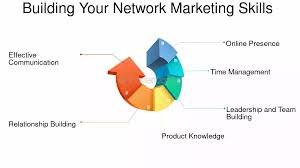The modern marketplace is a crowded and noisy arena. Consumers are constantly flooded with advertisements, promotional emails, and social media posts, all competing for a fraction of their attention. In response, people have developed sophisticated mental filters to block out generic, one-size-fits-all messaging. The old strategy of broadcasting a single message to a wide audience is no longer effective. To break through this noise, brands must embrace a more personal and targeted approach: one-on-one marketing. This strategy shifts the focus from mass communication to individual connection, building relationships that foster loyalty and drive long-term value.
This philosophy is about treating each customer as a distinct individual with unique needs, preferences, and history. It leverages data and technology not just to sell products, but to serve customers by providing timely, relevant, and valuable experiences. By moving away from broad campaigns and toward personalized dialogues, businesses can create a powerful bond that turns casual buyers into passionate brand advocates. This guide will explore the essential components of one-on-one marketing, offering a blueprint for how to implement this customer-centric approach to build a more resilient and successful business.
Beyond Demographics: Understanding the Individual
The foundation of one-on-one marketing is personalization that goes far deeper than surface-level tactics. Simply including a customer’s name in an email is a start, but it doesn’t create a real connection. True personalization requires a holistic view of the customer, understanding their past behaviors, their recent interactions, and their likely future needs. For instance, if a customer frequently purchases running shoes from your store, a personalized follow-up could include content about marathon training, a recommendation for high-performance socks, or an invitation to a local running group. This demonstrates that you are paying attention to their specific interests and are committed to supporting their journey.
Achieving this level of personalization depends on your ability to ethically collect and analyze customer data. Every website visit, product purchase, and customer service inquiry is a valuable piece of information that helps you build a clearer picture of each individual. Consequently, this data allows you to move beyond simple segmentation and create communications that are highly contextual and relevant. This data-informed strategy empowers you to engage with customers in a way that makes them feel understood and valued, transforming your marketing from an interruption into a welcome service.
The Framework for Scalable Intimacy
A successful one-on-one marketing initiative is built on several key pillars that must function together seamlessly. The first is a unified customer profile. This involves breaking down the data silos that often exist between different departments and systems, such as your e-commerce platform, customer support software, and marketing automation tools. By consolidating all customer data into a single, comprehensive view, you can create a more cohesive and intelligent customer experience. This ensures consistency and prevents common mistakes, like sending a promotional email for a product a customer has already purchased.
The second pillar is the use of intelligent automation. Managing individual relationships with thousands or millions of customers is impossible to do manually. Marketing automation platforms are therefore essential for executing a one-on-one strategy at scale. These systems can trigger personalized messages based on specific customer actions, such as sending a welcome series to new subscribers, reminding a customer about items left in their shopping cart, or offering a special discount on their birthday. The objective is to use technology to scale your ability to be thoughtful and responsive, making every interaction feel timely and personal.
The Tech Stack for Tailored Communication
Implementing an effective one-on-one marketing strategy requires the right set of technological tools. The Customer Relationship Management (CRM) system is the core of this technology stack. A well-implemented CRM acts as your brand’s central nervous system, storing all customer data, interaction histories, and communication preferences. It provides a single source of truth for your entire organization, enabling your sales, marketing, and customer service teams to deliver consistent, context-aware interactions that build on the customer’s entire history with your brand.
Alongside a CRM, sophisticated email marketing platforms and robust data analytics software are indispensable. Modern email platforms offer features like dynamic content, which allows you to create a single email campaign that automatically customizes its content for each recipient based on their profile. For example, a home goods retailer could send a newsletter that showcases outdoor furniture to customers in warm climates and cozy blankets to those in colder regions. For businesses seeking to develop this capability, working with a specialized agency for marketing 1on1 can provide the expert guidance needed to select, integrate, and optimize the right technologies.
Navigating the Nuances of Personalization
While the benefits of one-on-one marketing are substantial, the approach comes with its own set of challenges that must be navigated with care. A primary concern is data privacy and maintaining customer trust. Consumers are often willing to share their personal information in exchange for better experiences, but they are also increasingly cautious about how their data is collected and used. It is imperative that businesses are transparent about their data practices and provide customers with clear and easy-to-use controls over their information. A single breach of this trust can cause lasting damage to your brand’s reputation.
Another common pitfall is the fine line between helpful personalization and creepy surveillance. A product recommendation based on past purchases is generally seen as a useful service. An advertisement that seems to know about a private conversation, however, is unsettling. The key to staying on the right side of this line is to ensure every personalized interaction provides clear and obvious value to the customer. Personalization should always feel like a service that anticipates needs and makes life easier, not a tactic designed to pressure someone into a sale. The focus must remain on building a respectful, mutually beneficial relationship.
Building Lasting Loyalty Through Dialogue
Shifting to a one-on-one marketing model is a long-term strategic commitment, not a short-term fix. The initial investment in technology, data infrastructure, and employee training can be significant, but the returns are powerful and cumulative. By building authentic, individual relationships, you cultivate a form of customer loyalty that is resilient to competitive pricing and minor service issues. A loyal customer does more than just make repeat purchases; they become a vocal advocate for your brand, providing invaluable feedback and recommending you to their personal network.
Looking ahead, the brands that will lead their industries are those that master the art of delivering personalized experiences at scale. As technology like artificial intelligence and machine learning continues to advance, the opportunities for creating sophisticated and delightful customer journeys will only multiply. Companies that make individual relationships their top priority will build a robust and loyal customer base that serves as a solid foundation for enduring growth. By shifting from the bullhorn of mass marketing to the focused conversation of personal engagement, you can create a brand that people not only buy from but form a genuine and lasting connection with.




